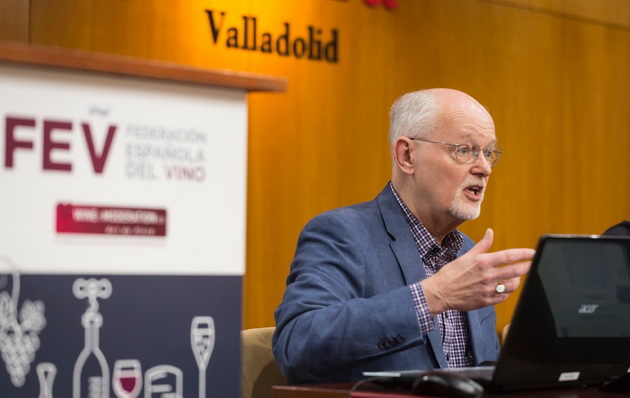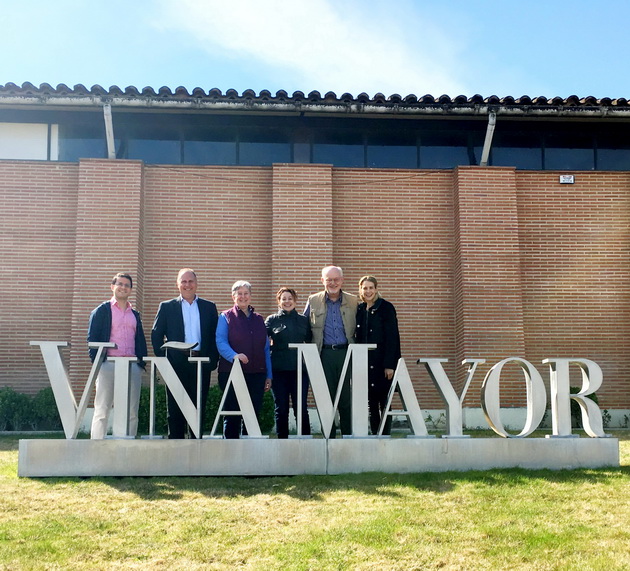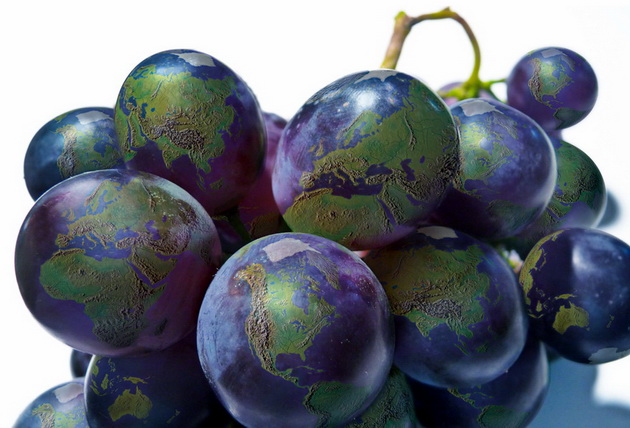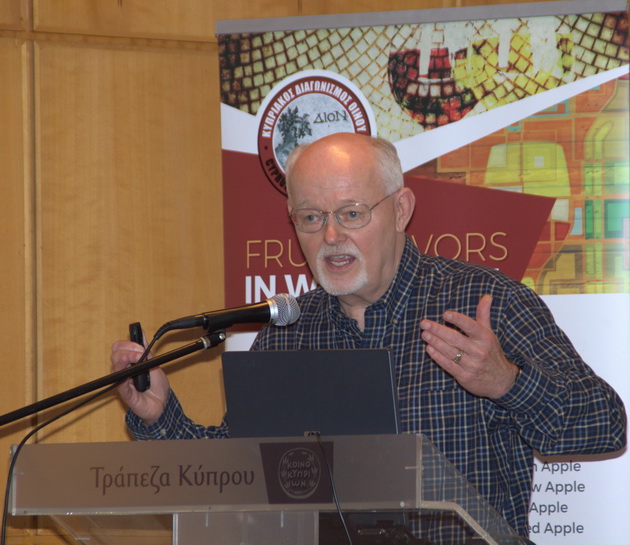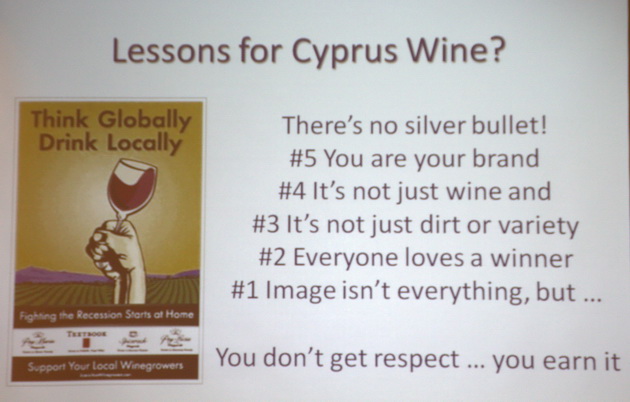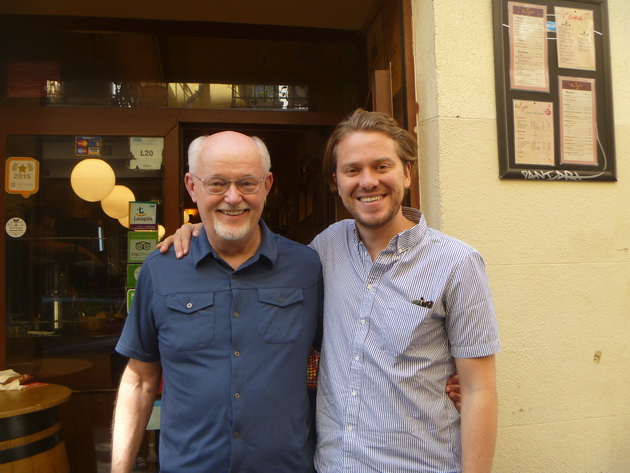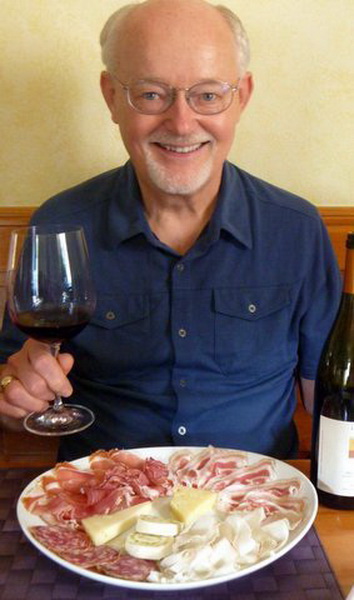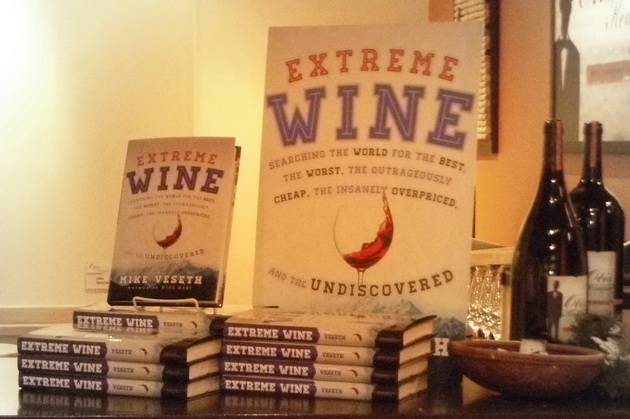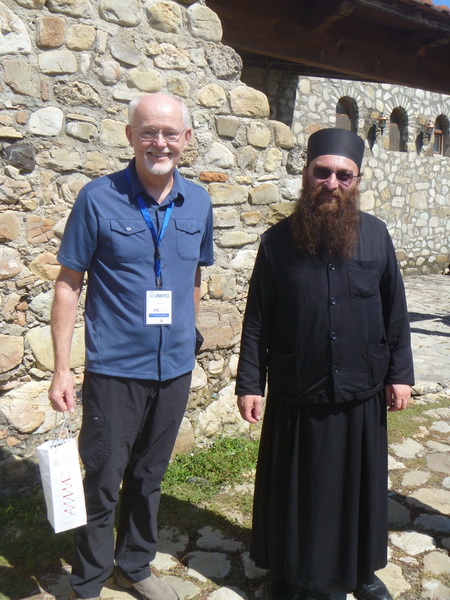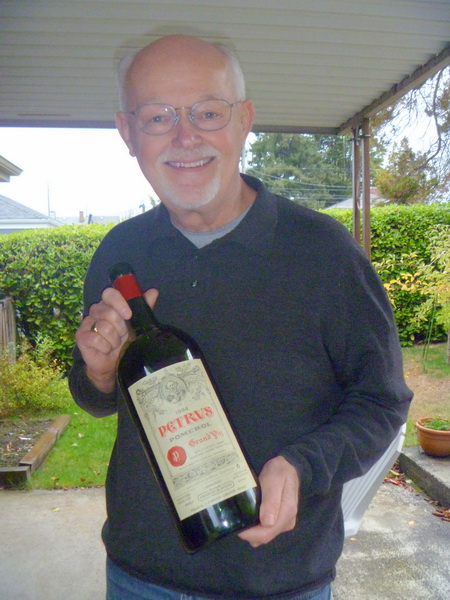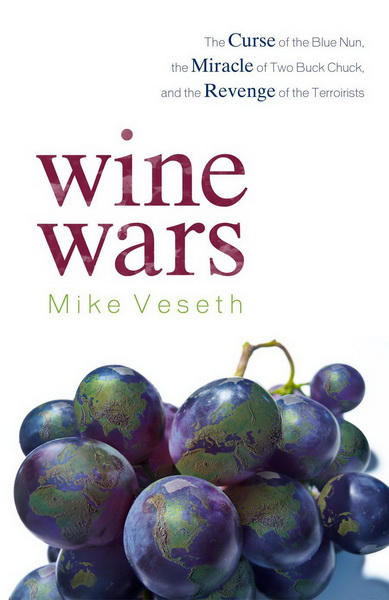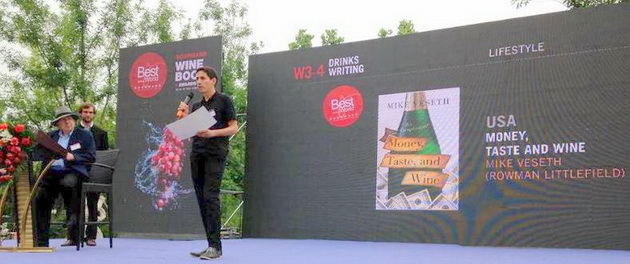Click on the Follow and Like buttons on this page to get notified when we go live.
We’ll be simultaneously broadcasting on Facebook Live, YouTube Live Stream and Twitter Live Video via Periscope.
Watch previous episodes of the Sunday Sipper Club (SSC) and find out who’s coming up next.
If you’d like to read the comments for this tasting, or make a comment yourself, visit:
https://www.facebook.com/natdecants/videos/10155608241189845/
Here’s a sampling of our lively discussion from our Mike Veseth Video Chat:
Alan Cameron10:02 This guy is GOOD ! Natalie…you’re bringing SO MUCH more to my knowledge and appreciation of wine by having so many wonderfully interesting guests…EXCELLENT !!

Stephen Andrews28:44 Tomorrow will have a chance to taste a sweet wine from Cyprus that is been being made for hundreds of year
Jim Clarke14:33 price affects my expectation of the wine more so than the perception of it. However, after having shelled out for it, I’m more likely to cut it more slack in determining if it meets my expectations….

Neil Phillips44:28 I’d be happier paying the same $$ for wine in Canada – but the LCBO giving a more fair price to the actual winemakers overseas.
Lori Kilmartin40:42 I bought the Fontanafredda Barolo DOCG today – marked down by $5 – only $24.95 for a not bad Barolo!!
Alan Cameron34:26 Wonderful to see you so enthralled with what Mike is saying ….Never heard you quote Tennyson before !!!

Stephen Andrews35:13 Book sounds good. I am travelling to discover great wines at good prices that we do not get at home. Lots of fun if you can do it.
Jim Clarke45:14 Wine is all about product differentiation – its comes to marketing and one of the 5 Ps is always price..

Jim Clarke28:24 My issue with price is that some boutique wineries set themselves up with high capital investment but then only have a planned small yield for which they still expect to make back their costs, plus profit.

Alan Cameron44:30 If Mike was a wine, he’d be a 99….The Gretzky of your guests. ( 100 is reserved for God )

Dave Head35:10 Small old world producers can offer great value. Kermit Lynch sniffs these ones out

Elaine Bruce35:14 Wine is wonderful. What else is there that has the artistry, history, complexity




Gregory Hughes35:49 There also region “cursed,” like chile. Douro, veneto, campagna, beaujolais come to mind…
Gregory Hughes51:55 Thinking about cork producers and their innovations is fascinating. Time for 1am googlage…

Stephen Andrews49:03 Enjoy Mike’s perspective of wine. Will look forward to reading his books.
Gregory Hughes45:09 Mike nails it on the prohibitive regs on cdn wine.

Neil Phillips27:06 Some BC Syrah is astounding for the price.
Stephen Andrews53:16 Great guest tonight enjoyed immensely .


Nicole Lougheed25:02 Agree re Chile as a great value region! I’m currently drinking an Errazuriz Max Reserva Cab Sauv


Neil Phillips24:01 Depends what one considers “value”?

Elaine Bruce27:55 Ahhh Natalie- you have a high QPV

Elaine Bruce25:47 Spain is also great value !

Paul E Hollander51:47 I liked his comments about corks.
Melanie Lloyd50:09 What a great interview!

Jim Clarke50:04 Thank you Mike – good job Nat!


Neil Phillips31:46 Excellent point, Jim. I buy to drink. ![]()

Economist Mike Veseth (pronounced VEE-seth) is an authority on global wine markets who travels the world studying wine economics and speaking to wine industry groups. He reports his discoveries on this blog, The Wine Economist, and in more than a dozen books including Wine Wars (2011), Extreme Wine (2013) and Money, Taste & Wine: It’s Complicated! (2015). The newest book, Around the World in Eighty Wines, will appear in November, 2017.
The Wine Economist was named 2015 “Best in the World” wine blog by Gourmand International. Money Taste, and Wine received the 2016 Gourmand International award for “Best in the World” wine writing.
Mike speaks frequently at national and international wine conferences. Click on “The World Tour” link to see where Mike’s been recently and where he is going next.
Mike Veseth is also professor emeritus of International Political Economy at the University of Puget Sound in Tacoma, Washington. He is an authority on globalization and the global wine market.
Mike was named Washington Professor of the Year by the Carnegie Foundation for the Advancement of Teaching. His 2005 book Globaloney was selected as a Best Business Book of 2005 by Library Journal. JancisRobinson.com’s annual book review named Wines Wars a Wine Book for the Year in 2011.
Mike has taught at the American Institute on Political and Economic Systems in Prague and at the Bologna Center of the Johns Hopkins University School of Advanced International Studies in Italy. He was Academic Advisor to the award winning educational website for the PBS/WGBH series, The Commanding Heights: The Battle for the World Economy. He is a trustee of the University of Puget Sound.
Mike earned the B.A. degree in Economics and Mathematics from the University of Puget Sound and the M.S. and Ph.D. degrees in Economics from Purdue University.
Selected Publications
Around the World in Eighty Wines (Rowman & Littlefield, 2018).
Money, Taste & Wine: It’s Complicated! (Rowman & Littlefield, 2015).
Extreme Wine: Searching the World for the Best, the Worst, the Outrageously Cheap, the Insanely Overpriced and the Undiscovered. (Rowman & Littlefield, 2013, paperback 2015).
Wine Wars: The Curse of the Blue Nun, the Miracle of Two Buck Chuck and the Revenge of the Terroirists. (Rowman & Littlefield, 2011, paperback 2012).
Globaloney 2.0: The Crash of 2008 and the Future of Globalization. (Rowman & Littlefield, 2010).
Globaloney: Unraveling the Myths of Globalization (Rowman & Littlefield, 2005),
The New York Times’s Review of the 20th Century: The Rise of the Global Economy (Fitzroy Dearborn Publishers, 2002),
Selling Globalization: The Myth of the Global Economy (Lynne Rienner Publishers, 1998) and
Mountains of Debt: Crisis and Change in Renaissance Florence, Victorian Britain, and Postwar America (Oxford University Press, 1990).
Mike has also authored or co-authored innovative university textbooks in the fields of Macroeconomics, Microeconomics, Public Finance and International Political Economy.
[Natalie] Does price affect your perception of a wine’s quality? What would it be like to travel around the world in pursuit of 80 wines? That’s exactly what we’re going to learn from our guest, who joins me live from Washington tonight. I’m Natalie MacLean, editor of Canada’s largest wine review site at NatalieMacLean.com and you’ve joined us here on the Sunday Sipper Club where we gather every Sunday at 6PM Eastern, that’s Toronto, New York time, to talk to the most fascinating people in the wine world.
Now before I introduce our guest fully, I want to say welcome everybody, and yes or no, please post in the comments below. Does price affect your perception of wine? I’m going to check out over on Facebook to make sure you can see and hear us, but I would love to know, post in the comments below. Does price affect your perception of wine? I think it does for a lot of us, I know it does for me for sure. Jim Clark says hi, hello Jim. Hello Carl, hey and yes it does. OK, great. I’m glad you are receiving us loud and clear. The other thing I want to say before we get going tonight is please take a moment to share this video. Steven Andrew says no. Beverly says yes it does affect us. Welcome, Anne McLean. Good AV.
All right, so take a moment to share this video because if you do and if you’re watching the replay, you didn’t have a chance to join us live, you can still get a chance to win one of our guests’ signed books, based on sharing this video. Also, while you’re at it please follow us. Then, you’ll get a live notification every time we go live here on the Sunday Sipper Club. And at the end of our discussion tonight, I will be announcing the winner of last week’s share contest, which will be a personally signed copy of Vikram Vij’s cookbook, which will be pretty amazing. All right, Allen Cameron has joined us, excellent. Thanks for the compliment on the earrings. Paul Hollander, et cetera. Alrighty, guys, so we’re all good to go.
Now, our guest this evening writes about the fascinating intersection of money, taste, and wine. He has published more than a dozen books that have won numerous awards, including The Wine Wars, Extreme Wine, Money, Taste and Wine: It’s Complicated!, and his latest book, Around the World in 80 Wines. He is a professor emeritus of the University of Tacoma at Puget Sound in Washington, where he taught international political economy, and prior to that, he earned his PhD in economics from Purdue University. Today he’s known as The Wine Economist and let me just bring him in here, and he joins me live now from Washington, welcome Mike Veseth, The Wine Economist.
Well, hi Natalie, nice to be here, thank you.
Fantastic, good to have you here Mike. And now I’ve just, I mean you have such an impressive background, I’ve only hit the highlights. Fill in the gaps and tell us maybe something that would surprise people about you, maybe that they wouldn’t know about you.
Well, I tell people that I lead, I have a double identity, I’m really confused. I lead a double life. If you if you go on to Amazon or Google and you search for Michael Veseth, which is the name my mother gave me, well, then you get the professor, the serious professor, the guy who writes books about globalization and series of university textbooks and so forth. And then, if you go to those same places and you look for Mike Veseth, then you get me, The Wine Economist, the person who writes about wine. The difference, the split, the personality split, was actually very intentional. When I started to get into writing about wine, I didn’t want to write just for professors. You know, there are a lot of academic wine economists. There’s a European Wine Economist Association, an American wine economist. I didn’t want to write just for them. I wanted to write for people in the industry, for consumers, to get lots of feedback. Through a little testing, we discovered that Michael Veseth didn’t get a lot of replies and comments. People were a little intimidated by the professor, but Mike Veseth, oh yeah. Here I am.
Well, Mike I’m glad you joined us and Michael has retired for the evening. That’s great.
He’s still around if you need him.
That’s excellent, all right, Mike. We did talk about this before when we did a shorter video, but please tell us The Wine Economist, how did you get that title?
Well, I learned about that there was such a thing as a wine economist from a famous winemaker. It was a while ago when my wife, Sue, and I were newlyweds. It was so long ago that people without a lot of money could take a budget vacation Napa Valley. That’s what we were doing we drove from Washington State to California. We were staying in a budget hotel and not spending a lot of money, trying not to spend a lot of money. On the way back in the last day, we were driving up the Silverado Trail, and I saw this name. If I knew more about wines then that I would have recognized that it was the name of a winery that was kind of famous for that Judgment of Paris that had gone before.
Right.
But I didn’t know that, so we pulled in for one last tasting, and walked through the big redwood doors, and there was a cellarette, and the winemaker was there. If I’d known more about wine, I would have known that he was pretty famous, but I didn’t know. He pulled out the corks and poured the bottles. We began to talk and I was sitting there, at the end of a long day of wine tasting, and I was having trouble swirling without spilling, so I was working on that, asking these simple questions. He learned that I was an economist, and suddenly he began to ask me very serious questions. He wanted to know about inflation rates, ’cause they were moving up, and interest rates, because they were 18, 20, 25, 30% and so forth. It really made a difference to him, because his business involved a lot of capital investment. It involved a lot of time. Time for the vineyards, time for the barrel aging. He really wanted to know that when these wines were ready, would the economy be there? Would consumers be there? Would it be a a good situation to sell it? What was happening in the economy, the part that I knew about, would affect whether his wines– Well, what he could do, in terms of making an investment and barrel aging and so forth, or what he might have to do. When I got back to our budget hotel in Santa Rosa that night, I sat down and said, “Wow, I think I just learned something.” I learned that there is wine economics. That the wine is an art and a craft and a science, but it’s also a business.
Absolutely, Mike. I would just say that, given that vines, on average, take seven years to mature, if not longer, people in the wine business have to plan, really, for the long term. We’re talking seven years out. It’s not like, this year’s sneaker style. It’s like, decisions you make today will affect your bottom line 7, 10, 15, 20 years from now. I don’t know if you’ve found this in your travels, but I think that’s often why family businesses do well in the wine industry. I know there’s been a lot of corporate, you know, takeovers and so on, and consolidations, but still, families who look to that long term, the economics, I think, work in their favour, if they are always looking at that long term vision.
Oh, that’s exactly right. In fact, one of the chapters in Around the World in 80 Wines, the chapter on Australia, talks about the unexpected importance of family businesses, and some of the reasons about why that might be the case. I think you’re exactly right. When you look at other industries of the same size, that are global industries, they’re not as dominated by family businesses as the wine industry is, that’s for sure.
Wow, this is the most fun kind of economics I’ve ever encountered.
It’s economics with a glass of wine, so that…
Exactly, exactly. I love that. I did an MBA, but it was like, economics was never this fun, Mike. All right, I’d like to welcome Gregory Hughes, who is sipping on a Canadian Chardonnay, fermented in Missouri Oak, interesting.
It is interesting.
Good cross-border recognition of tonight’s discussion, Greg. Steven Andrews is logging in from the Aegean Sea. You are always traveling, Steven, and drinking affordable wine. Carl Weaver, “Yes, price affects what I buy, “but not necessarily how I judge the value of the wine.” Guys, if you’re just joining us, you’re here on the Sunday Sipper Club, please post in the comments below. Does price affect your perception of the quality of wine? Do you perceive a more expensive wine to be a better wine? It’s okay to admit that, definitely. Beverly from California is drinking Clos Pepe Pinot Noir. Okay, so Mike, let’s do a little bit of background storytelling before we dive into your books, your fantastic books with the best titles ever, that I’ve heard of. Let’s start with, maybe take us to the worst moment of your wine career. Let’s start there, then we’ll go low then we’ll go high.
All right, start at the bottom, huh?
Exactly.
I am fortunate, I haven’t had any tragedies. I’m not a winemaker, so I haven’t lost a [Indistinct] or had something terrible like that happen. I think maybe, the worst personal moment was both embarrassing and painful. It was a couple years ago, and a local group of amateur winemakers decided that they would host a charity event to raise money for charity. They asked me if I would be a wine judge. I’m not a professional taster, like you. I mean, they should have asked you, but instead they asked me, so it was great. It was an amateur judge and amateur winemakers. Our team of judges, wee tasted everything wine. Then we went back and tasted some more. When we announced the winner, for example, the wine we chose as the best. This was the embarrassing part. The best white wine wasn’t even made out of grapes.
Oh.
It was made out of figs.
Of what?
Figs.
Figs?
F-I-G-S, yeah.
Oh no.
It tasted like a Malvasia or a [Indistinct]. It was head and shoulders better than the other white wines, but people looked at us like we didn’t really know what we were doing.
I can imagine.
It was embarrassing, but not painful. The painful part came that night, when all of us judges got horribly sick.
Oh no.
Because one of those amateur winemaking wine must have had a bacterial problem, so we all got food poisoning. You know how you spend the night with food poisoning.
Yeah, that’s no fun.
That was the worst moment.
Wow, that’s pretty low. That’s pretty low. Oh, my gosh. Laurie Kilmartin joins us and says hello Mike, and so does Murray Johnson. Allen Cameron, “This guy is good, Natalie. “You’re bringing so much more to my knowledge “and appreciation of wine by having such “wonderfully interesting guests.” I would agree, Allen. He is excellent. More stories to come. That’s a great story, Mike, oh my gosh. Judging a homemade wine competition. You are a brave man.
I didn’t know I was brave then. [Natalie Laughing]
Let’s go high now. What has been the highlight of your wine career so far?
I’ve had a lot of great moments. I really am a lucky person. Interesting, a book reviewer once started a review that says, “Everyone should be as lucky as Mike Veseth.”
Nice, why did he say that?
It seemed like, ’cause I’m happy with what I’m doing.
Very nice, that’s lovely.
My best moment was, I think it was back in 2013. I was invited to South Africa to give the speech at something called the Nederburg Auction.
Okay.
The Nederburg Auction, Nederburg is a winery in Stellenbosch. They have an auction once a year, and they choose older vintages from the best of the South African wineries. The idea is that most people never have a chance to taste an older vintage, so they curate these things, and auction them off to retailers and distributors, and so forth, from around the world. It gets the best of South African wine out where people can taste it and appreciate it. Every year they have one speech, and so I got to give the speech.
Nice.
It was interesting, ’cause I was so darn nervous. I was trying to learn everything I could about South Africa’s wine, and that. I got to the end of the speech, I’m quoting the Wine Enthusiast, which sent a reporter to cover it. It said that people stood up and cheered.
Oh, isn’t that great?
I think the thing they loved is that I wasn’t telling them, you know, “This is what you need to do to be,” but at the end of it, I suggested to them that their wines were great, and they were really great. They are. But what they needed to do to try to draw in the rest of the world to their wines is to do what they do best, which is something called a braai. Have you ever been to a braai?
That’s a South African, is it a barbecue?
It’s like a barbecue, yeah.
Okay.
It is the uniting force in South Africa that black and white and Indian and indigenous, everybody in South Africa gets together to enjoy a braai. Their National Day of Unity is actually called Braai Day. I think the idea that I would be saying that the thing that brings you together is the thing that could help propel you, because there are braais that go with white wines, and braais that go with red wines. Everyone likes a barbecue or a braai.
Absolutely.
It was a moving moment. I was really moved by that.
Oh, that is, yeah. You’ll remember that. You remember the things that touch you deeply, that you feel deeply. Braai also reminds me of the Argentine equivalent of Asado.
That’s right.
I don’t know if I’m pronouncing that correctly, but yeah, very cool. Well, the comments are pouring in, folks. Thank you so much. Post again, I can only see five comments at a time, then they disappear, so I’m not ignoring you. Post again if I miss you. Greg says, “Ooh, nice, Laurie.” Oh, he’s complimenting her on her wine choice. I love when they talk together. Paul Hollander from Virginia, “Patty and I are having a glass of Campus Oak Cabernet “from Lodi.” Jim Clark, “Price affects my perception of wine, “more so affects my expectation of wine “more than my perception.” I like that, my expectation of wine more than my perception. “However, after having shelled out for it, “I’m more likely to cut it more slack if determining “if it meets my expectations.” I really should be wearing my reading glasses. I’m just too vain not to on video. Murray Johnson, “Having the Penfolds Bin 138 with “roast, mmm, excellent.” Murray, we’re coming over. All right, fantastic. Mike, let’s go now to, maybe, perhaps the most memorable thing someone has said about your writing. I think you’ve said something already that was really interesting, but is there anything else you wanted to add to that? ‘Cause I know you’ve won lots of awards.
I think, once again, it’s a moving thing. There’s a winemaker in the south of France named Caro Feely, and she runs a wine school, and she and her family have a vineyard. She writes books about her experiences. Her newest one is called A Glass Half Full. I think it’s just come out. She, a few years ago, asked me to write a book blurb for one of her books, a little endorsement on the back of the cover, so I asked her to write one for Money, Taste, and Wine: It’s Complicated! She sent me the blurb, and in the blurb she said that she laughed out loud at some of the things I said.
That’s always good.
Then, in the text of the email that went along with it, she said it also made her cry.
Oh.
It made her cry because, although she’s living in France, she’s originally, it’s a South Africa connection, she’s originally form the Klein Karoo, this wonderful, kind of remote area of South Africa. In fact, Money, Taste, and Wine ends in the Klein Karoo with Sue and I in the back of a pickup truck, going to a braai with the stars above us and everything. She said that my description of that journey, at the end of the book, made her so homesick that she started to cry. Of course, again, that touches me because to think that I might be able to connect with someone in that way, that closely is crazy.
Absolutely. You’ve already painted a picture too, in the back of a pickup truck, and the stars, and everything else. It’s being there, it’s taking us there with that imagery. That’s just lovely. All right, so let’s chat about your books. Would you like to start with your most recent one, Mike?
Oh, sure.
Okay.
This is Around the World in 80 Wines.
Excellent, hold it close to your camera there. I’ve got a screenshot of it anyway, that I’ll put up here. Excellent. We know Around the World in 80 Days, classic book. What’s the concept? What’s the organizing principle, if you will.
For the longest time, I have been fascinated by books that take the reader on a journey. Although the idea of this is that you’re following the author through this, and discovering something about the world, it seems to me that you’re always really interested in finding out something about yourself. I’ve got Around the World in 80 Days, and Gulliver’s Travels, and Jonathan Rabon’s Old Glory, and Mark Twain’s travel books. They’re all around here. I’m just fascinated. At one point, I began to realize that Sue and I were on a journey of our own, too, and discovering things about the wine world. Fascinated, inspired by Jules Verne, I decided to make his journey, and to see to what extent the journey that we’d been taking mapped up with it. For example, his journey begins in London, at a place called the Reform Club. Our journey begins in London, three blocks away, at a wine shop called Berry Brothers and Rudd.
Oh, that’s famous in London, yeah.
He’s been selling wine for 400 years, and so forth. That’s the start and the end point. It follows Phileas Fogg, the Jules Verne hero, through France and Italy, but then life gets complicated. Phileas Fogg has to get, as fast as he can, around the world. I’m more interested in accumulating stories. This is, maybe, the big difference. Around the World in 80 Days was designed to be this story of man and technology versus nature and distance. The idea that someone could overcome the challenges of moving quickly around the world, a technological problem. For me, it made me sort of stop and think, “What is it I’m trying to find out about wine in the world?” I ended up on the question of, “Why wine?” Why is wine so important? Why does wine motivate and excite and inspire people around the world? If I’m doing this, I don’t have to cover distance. I have to accumulate stories that reveal some truth about the importance and significance of wine, and the people to their communities, to their families, to the world.
I love the concept. I love that, following the footsteps of a classic journey, a classic novel. It’s fantastic. What a great organizing principle, ’cause you do need that to hold together the narrative. Beverly asks Oh, so before I get to Beverly’s question, Elaine Bruce is saying, “I am loving all of this.” Yes, Elaine, excellent, you should stay tuned ’til the end of this, Elaine. Beverly says, “How long did it take you to write this book?”
It took a little over a year to actually get the writing of the book done. Part of that is that as we travel, I record a lot of my thoughts and so forth on my blog, The Wine Economist. It’s at wineeconomist.com. The Wine Economist started off as a way for me to have this exchange with people, so that I could try out ideas, instead of trying ideas in academic papers, trying out ideas out in the open so that people could criticize them, make suggestions and so forth. A lot of the writing of the ideas had been developed. Then it’s a matter of sitting down, and that painful process of actually getting words on a screen.
Yes, absolutely. You treated your blog, or your website, the wineeconomist.com, almost like a peer review site?
Exactly
The way academics would contribute and say, “Okay, you need to look at this, refine this, “this question is unanswered.” That’s fantastic that you…
It worked really well, because if I’ve got a good idea I learn about it. If I’ve got an okay idea, people improve it. If, as often happens, I have a terrible idea, I find out about that pretty fast too.
Very quickly, yes, as do I. I have a group that I call Wine Lovers for Better Grammar, and they will tell me every time I’ve got a dangling participle or a comma misplaced. There’s a raging debate about the Oxford comma. Anyway, that’s going down a rabbit hole. Laurie asks, “What, in your opinion, Mike, “is the best value wine?” That’s a big question. I’m sure there’s many answers, but where would you point us to, as a wine economist, for the best wine values these days?
Hmm, okay. There are great wine values from a lot of places. It’s a matter of searching them out, and increasingly looking where you’re not expecting them. The wines from Chile, for example, red wines from Chile, have a reputation for very good value. It’s, in fact, as I’ve talked about in the book, it’s almost a curse, because they would like to be known, the Chileans, they’d like to be known for great wines and great values. People tend to think of them as great values. The South African wines, not that many in the market. Some of them are stunningly delicious for the price that you would pay.
Absolutely, I’ve come across some recently, Mike, that taste almost like a Bordeaux. I’ve been recommending them. They’re like, 25 bucks and they taste like a even a second, third growth Bordeaux. It’s like, wow. Many of them have had their tutelage in Bordeaux. It’s unbelievable, the value coming out of there, and the refinement, and yet it’s a South African signature that’s on the wine.
Let me put in a plug for Washington state wines.
Yes please!
Because Washington state, there is a reason why California wineries are now investing more in Washington. They can make wines that will remind you of a Napa Valley wine, but at half, or a third of the price.
Right, absolutely. Right to that point, Mike, I want to welcome Nicole Lawheed, who joins us, “Agree, regarding Chile “as a great value region. “I’m currently drinking Max Reserva Cabernet Sauvignon.” Great wine, excellent wine. Neil Phillips, from Toronto, says, “Depends on what you consider value.” I guess we’re getting into definitions now, as we will on any discussion like this. How would you describe a “value” wine, Mike?
Oh, I have a colleague, Pierre Lee, he’s French. He and his wife, Cynthia Housen, go wine tasting at events with me. Here’s what they do. They go around and they taste the wine. They’ll write down 89 points, or they write down how much they would be willing to pay for it.
I love that!
Then they look to see. If the price is less than what they had thought they’d be willing to pay I call it the “Is it worth it” index.
I love that, that’s brilliant. Awesome, I’m going to do that from now on. How much would I pay for this? Excellent.
Now, there are sometimes when, even though the price is very high, you taste that wine and think, “Wow, this is priceless.”
Exactly, exactly. People are always looking for that. They do the QPR, the quality price ratio. There was even a site, I don’t know if it still exists, that does that and they take, for quality they take the score, which is an approximation, and relate it to the price, but I love that concept of “How much would I pay for this?” I love that, I love it. Dave Head is drinking Red Line from Washington state with his lamb tonight. Dave is on trend. You are right on trend, yeah. Elaine Bruce is asking, “Bordeaux, left or right “for the value?” Left bank or right bank for the value?
I’m the wrong guy to ask.
Right, well, so am I, ’cause Bordeaux is all overpriced to me, but maybe the bourgeoisie or lower crew estates will offer you value, Elaine. Spain, excellent, yes, I agree Elaine.
Oh, yeah, absolutely right.
Absolutely.
And some nice Portuguese wines.
Yep, Portuguese, and, because we have one of these hangover perceptions that it’s all port and dessert wine, but they’re making some terrific dry table wines. Again, the value is there. Neil Phillips says, “Some BC Syrah is astounding “for the price.” Yes.
One of the EU wines is a BC Syrah.
One of the what wines, sorry?
One of the EU wines is a BC Syrah.
Oh, in there, yes. Which one is that?
It’s the C.C. Jentsch.
Oh, yes, yes. You have a number of Canadian wines in there. You mentioned Cave Spring, Sand Hill.
Then Tantalus.
Yes.
The Tantalus Old Vines Riesling.
Right, and they make terrific Riesling. [Laughing] Elaine says, “You have a high QPV.” Okay, good. [Laughing] We’re getting evaluated here tonight on our discussion, but that’s great. I’m glad. Okay, wow, the comments are coming in. So interesting. “We’re going to our annual big Cab tasting,” says Paul, “and we’ll use the concept for our purchases. “Thank you, Mike.” I love that idea. Very good value add here. Jim Clark says, “My issue with price is that “some boutique wineries set themselves up “with high capital investment, but then only have “planned a small yield for which they expect “to make back their costs plus profit.” Any comment on that? The whole boutiquey wines?
No.
Maybe it’s just a yes or no.
What we say in my part of the business is that… Do you know what someone does if they have more money than they know what to do with, but not enough to buy a baseball team?
Ah, they start a winery?
There we go.
I like that.
I have to be careful with that, because I have friends that have started wineries. I actually have a friend who owns part of a baseball team. When I tell this joke, I offend a lot of people. Part of it is that it comes down to a matter of value. When someone starts a boutique winery, they’ve got their heart and soul into it, and everything. They want to be validated. They want to have their decision to do this validated. Setting a high price, because people confuse price with value, right, quality? Setting a high price is maybe something that they have to do for the economics, but more often, I think it’s something that they want to do because they want to have the status that is associated with it.
Right, where the ego.
I think we stop thinking about the idea of the price and quality are the same, then we wouldn’t have that problem as much.
Absolutely. Well, if ego didn’t get in the way of a lot of things, we wouldn’t have so many problems. That’s okay, we’re not here to solve all of those. We’re just here to talk about the wine world. If you’re just joining us, folks, we are here on the Sunday Sipper Club. If you’re enjoying this conversation, please take a moment to share it. Add a comment as you do share, because we will be drawing for next week. If you’re watching the video replay, you still have a chance to do this, for a personally signed copy of one of Mike Veseth’s book, who joins us tonight, The Wine Economist at the wineeconomist.com. At the end of this session, I’m going to be announcing the winner of last week’s contest. A personally signed copy of Vikram Vij’s cookbook. You’ll also want to follow us to get notified when we go live every time. All right, so back to some more comments. “Huge fan of that wine, Mike. “Few in the cellar in Ontario. “Creekside Broken Press Syrah tastes double the price.” That’s Neil. Steven Andrews Oh, you just disappeared, your comment. They’re going too fast, now, for me to keep up with this. Okay. Steven Andrews, yeah, you’re talking about John Howard’s Megalomaniac Winery, that would be an interesting thing. Okay, so, Mike, let’s get back to your books. Is there anything else you want to tell us about Around the World in 80 Wines? It’s your newest book. We can talk about some of your other books, but is there something else you want to say about that one before we, sort of, talk about the other ones?
Well, just that, for me, it is an account of what is really quite, it seems to me, a fascinating journey and an opportunity to think about all the different ways that wines affect people and affect all around the world. I will say that this is a teaser for your viewers here, that in Around the World in 80 Days, Jules Verne has a surprise ending twist, because he arrives in London, and he thinks he’s lost.
Ah.
Only to discover that, through some twist of fate, he has not lost at all. Inspired by that, Around the World in 80 Wines also has a surprise twist, which I provided not only to imitate Jules Verne, but also to make it possible for every reader, no matter what their wine tastes would be, to come away satisfied with the conclusion.
Oh, I love that.
If you read the book, take a look. Wait for that, wait for it, as they say.
“To begin again, at the beginning, and to know that place for the first time.” That’s Lord Alfred Tennyson, but to journey through our senses, through the world of wine. This sounds like this is your book. Then, to come back again, more knowledgeable, and yet, to know that sensory experience for the first time. I need to dig into that. Oh my goodness. Murray Johnson says, “I have had a lot of New World “wines that I can’t afford Old World wines. “Is that happening generally, do you think, Mike?” That Old World wines are becoming more inaccessible to more of us?
Well, no, because if you look at Bordeaux, for example, everybody looks at the first growths and the second growths and the famous classified growth Bordeauxs and, sure enough, those are very expensive. I don’t drink those but once or twice a year because I have friends that like to share those growths of wine, but in fact, you know, Bordeaux has 3,000 wine producers. There are different grounds. It seems to me, looking at, for example, the sales patterns at Costco. Costco has begun to sell more of the affordable Bordeauxs that are now being produced in a more accessible style.
Okay.
I think that the winemakers in the Old World recognize that the market for the very best wines is limited, and it’s not even a drinking market. It’s mostly a collecting sort of market.
Collecting versus drinking.
People compete. Winemakers in the Old World So it’s a matter of looking for these things. Looking to reviewers like you and others to help guide them, because there’s the 3,000 producers. How do you know what to drink? Don’t give up, is my advice.
No, never give up. Keep going. That’s a great encouragement. Laurie says, “What is Mike’s opinion on “expensive wines? “Are the prices based on wine reputation, “not necessarily the wine itself?” We touched on that a little bit. Anything you want to add to that, Mike?
Well, many of the studies Some people think, well, it must cost so much more to make than a less expensive wine, and that’s why it’s so expensive. Really good wines, really, the highest quality do cost more to make, but not so much. The price is based on what people will pay, more than anything else. If it’s Screaming Eagle, I’m not that person who’s going to pay the $800.
Right. You’re not the customer. [Laughing] It’s not mispriced, you’re just not the customer.
Yep.
Yep, okay. There’s so many great questions coming in so quickly. “Wine is wonderful. “What else is there that has the artistry, history, “and complexity?” Agreed, Elaine. Steven Andrews says, “Your book sounds great. “I am traveling to discover great wines “at good prices that we do not get at home. “Lots of fun, if you can do it.” Steven is always traveling the world. He’s always logging in from somewhere different. Greg Hughes, “There is also region that is cursed “like Chile” Oh, you mean, in the past had a bad reputation. “Veneto, Campania, Beaujolais come to mine, “all Old World.” Yeah, regions that had to recover from something, I think even of Germany and the sweet wines, you know and so on.
Beaujolais is type cast for Nouveau.
Yes.
All this time, so many young people especially have never tried a Crus Beaujolais.
[Natalie] Yeah.
Those are really wonderful wines, and affordable too.
And entirely different from the Nouveau.
Exactly.
People confuse them and think all Beaujolais must be consumed within six weeks of release, but it’s not true. There’s ageable Beaujolais that’s released closer to Easter, April or March timeframe is when that comes out.
In Around the World for 80 Wines, I talk about Beaujolais and Nouveau, and I call Nouveau a Black Friday wine.
Oh, how timely. Why Black Friday? Because it’s a discounted?
I think it’s in Canada too, Black Friday is the day that, if a retailer can sell enough, they’ll be in the black for the whole year. If they can’t sell enough, they’ll be in the red. For the longest time, Beaujolais Nouveau was that Black Friday wine. At one point, more than half of all Beaujolais wines were Nouveau. If you can sell all of those, and often, they sold them at a higher price than the Crus Beaujolais wine, sell all of those, they’d be in the black for the whole year.
It’s definitely a cash flow crap.
Yeah, that’s Chateau Cash Flow, exactly.
Ah, I like that. [Laughing] That’s great. Some of your books, well, all of them, actually, have intriguing titles. Money, Taste, and Wine: It’s Complicated! What was the concept of that one versus Around the World? There you go. Love the title, love the concept.
This began with the idea that an economist might be able to talk a little bit to consumers about how an economist would buy wine, if an economist thought about it a little bit. For example, the very first chapter is called The Wine Drinker’s Biggest Mistake. You know what that is.
Tell us.
It’s mistaking price and quality.
Ah, okay, all right, there you go.
I talk a little bit in here about some of the research, about how that’s the case and why that’s the case, and how it can lead to all sorts of errors. I point out that, I have friends that, when they go to the supermarket to buy wine, what they look for are what they call shelf talkers.
Yeah, those slips with the points on them?
Yeah, sometimes they have points, but I have friends that, what they look for, is the biggest markdown. You know, $20, but you pay only $12, or something like that. They look at the top number and they say, “Wow, that must be a really good wine,” and they look at the bottom number and they say, “Ah, okay,” but if you found a car like that, if you were looking for a used car and it said, “Regularly $20,000, but for you, only $12,000,” you would say, “What’s wrong with it?”
Yeah, that’s true.
But I have friends that, when they see that, it’s like a trout going after a lure, and they just can’t stop themselves from doing that. Part of that, you had one of your commenters earlier on said that they used the price, because the price informs them on what to expect. Some of the research suggests is that when you see a price, your brain, first of all, is always way too busy. You’re always multitasking and that. It’s always looking for shortcuts. When it sees a price, then it knows that the higher price ought to be justified by higher quality, so it begins to program in an expectation of higher quality. When they did these awful I say awful only because I would hate to be one, these awful MRI studies, where they put consumers in an MRI and they put a tube in their mouth, and they feed them wine, and they tell them stuff?
Yes.
When they told them that it was They took the same wine, and when they told them it was, like a $12 wine, the little part of the brain that shows happiness glowed a little bit. Then, a little later, when they told them it was $100 wine, same wine, they not only thought they were happy, but they were actually happy.
They actually were. At least chemically.
Turns out money does actually buy happiness, in a very limited sense.
Awesome. Why do we fall for this sale, deal thing in wine and not on cars? Why don’t we look at the wine that’s on sale and go, “What’s wrong with that wine?” Or do we?
I think there are consumers that respond in different ways to all of this, for example. I think part of it is that many other things that we buy, we have experience with them, or we know about them. You know, in a supermarket, there are 2,000 different wines and you don’t really know what’s in that bottle, or, even if sometimes it’s a fine wine, you don’t really know that vintage very well. You’re working in the dark more than you are in a lot of other consumer goods. That means that all of this little bit of information is very influential.
[Natalie] Yeah, it’s true.
But you’ve got to, then, overcome this idea that price is giving you more information than it really is.
Huh, that’s great. I always say that there’s a reason we don’t have orange juice critics, right?
That’s right, that’s right. Or, in the supermarkets around here, they’ll often have a clerk that lurks around to help people make decisions, a wine steward. I point out that they don’t actually have milk stewards.
No, exactly. There’s no one saying, “Buy that cabbage versus that one.”
That’s it, yeah.
You’ll be fine.
Money, Taste, and Wine started off as this, and it talks about, to help people, guide people through how to think about buying wine in a restaurant, or whether to invest in wine and so forth. Then, in the later chapters, begin to think of all the different places where money and taste are involved Excuse me, taste and wine were involved, then you add money to it, and it changes it.
Money changes everything. Okay, Steven Andrews says, “In your opinion, Mike, “do countries generally set trade barriers for their wines? “In Canada uses wine to raise taxes, so our wine becomes overpriced,” Wow, deep economics here. “Compared to European countries.” Any comment on that?
In general, I would say that they wine trade is relatively free among nations. There are trade barriers and so forth, but in the US we have taxes on imports from other countries. You, in Canada, I’ve been fortunate to, I think it was 2015, I spoke to both the Ontario Wine Growers Association and the BC Wine Growers Association the same year. For you, it’s the regulations in the domestic market that are the greatest barrier, it seems to me, from your wine in general growing and blossoming the way I would like to see it.
Exactly. The fact that we can get a California wine easier than here in on Ontario, than we can a BC wine.
BC wine, yeah.
It is insane. It’s a grassroots industry. Anyway. Preaching to the converted.
It’s also complicated.
Yeah, it is. All right, [Laughing] Allen Cameron, “If Mike were a wine, he’d be a 99, “the Gretzky of your guests. “100 is reserved for God, so you’re not going to get that.” You’ve got a very high score tonight, Mike. They don’t usually rate guests. [Laughing] Okay, so let us turn now, I can’t believe how fast this has gone, which is a testament to how interesting you are, Mike. What I’m calling The Lightning Round.
Okay.
All right. These are a series of quick questions and short answers because we just love getting tips and advice as we come to the finish line here. What is the best piece of wine advice you’ve ever received, Mike?
Know thyself, trust thyself.
Exactly, okay. What’s the one thing you were wrong about, perhaps, as it relates to wine?
Oh, I think I’ve been wrong about a lot of things. One thing that I think I was wrong about, that a lot of other people were, is cork closures. I think a dozen years ago, I kind of wrote off cork. I thought screw caps are getting better, and synthetics and so forth, but the amount of research and change that there has been done in order to improve cork closures, now. They’ve even got something called a helix, a screw cork. Have you seen this?
No, I haven’t, yeah, okay.
Google “helix cork.” It solves even that last problem. Now, cork taint, even in less expensive corks, is virtually eliminated in the world. Cork is back. Because it’s a natural product, I’m glad that it’s back. I have nothing against the other things. I wrote off cork without appreciating how much the cork producers would invest to resolve their errors, and how much people love cork.
I am glad to hear that. I need to reexamine my own misperceptions, or hangover perceptions of cork. Thank you for that. What’s the most useful wine gadget that you’ve ever come across?
I’m not a big fan of gadgets.
No?
For me, corkscrew is but a friend of mine, earlier this year, showed me some gizmo, where you take a wine bottle, and you put a thing in it, and you put a carafe upsidedown, and you flip it over, and it gurgles, and you flip it back over so the aerated wine goes back in the original bottle. It wasn’t very expensive and I could taste the difference.
That’s so cool.
I’ve got a gadget.
Okay, that’s good. [Laughing] If you could share a bottle of wine with any person, outside of the wine world, living or dead, who would that be?
Outside of the wine world, hmm. Maybe Mark Twain, because he traveled to some of these places. Or Jules Verne.
Oh, Jules Verne, yes.
I think that would be it, yeah.
Hmm, excellent. If you could put up a billboard in downtown Toronto or Seattle, wherever, what would it say?
If it’s in Toronto, it’s easy.
Okay?
Tweet VQA Wines.
Oh, all right.
There’s so many great VQA wines in Ontario, and I’d love to see that industry explode.
Fantastic. Finally, what’s the most interesting question you’ve ever been asked? ‘Cause I’m collecting them.
The most interesting question I’ve ever been asked. I guess it must be this one, because it’s a hard [Laughing]
Okay, so that’s sort of circular, but that’s fine. That’s great. Okay, Mike, as we wrap up our conversation, is there anything we have not covered that you’d like to mention right now?
I just want to say how much I have enjoyed this, and interacting. I’m looking forward to reading, when the program is over, reading the comments your viewers have left.
Absolutely, thank you so much, Mike, because we will, as they post their comments, you know, you and I will both dive in there and answer unanswered questions, comment, and so on. That’s part of the ongoing conversation that happens, just not tonight, but as the week goes on. That always makes it great for everyone who’s here tonight. How can people best find you online?
Well, you go to wineeconomist.com, or write to me at [email protected].
Okay. Are you on Twitter as well?
I’m on Twitter at @mikeveseth.
Excellent, Mike, this has been a fantastic conversation. Thank you so much for all of the insider tips. There’s just so many I’m going to take away and do myself, from how much would I pay for this wine to look again at cork. The whole gamut. It’s been very valuable. Thank you so much for all of your insights. All right, so we’ll say goodnight for now, but we will be in touch again. You should be a repeat guest, for sure. [Laughing] Okay, bye for now, Mike.
Goodbye.
Okay, bye bye. All right, folks. We are back again here. Excellent. I am just reading your comments. As we come to the finish line, don’t forget, we’re announcing a winner tonight, so stay tuned. Don’t disappear yet. Please take a moment, in the comment below, to post the most interesting thing you learned tonight. Surprisingly tidbit, most interesting. Mine would be, you know, what would I price this wine at before I know the price? As well as, take another look at cork. If you really loved this conversation, please share it now. It’s okay, it’s at the end, but that’s fine. Because when you share it with your own peeps, they will watch the video replay, which is a good thing. If you found this conversation valuable, share it, add a comment. That always makes it even more valuable as a share, versus just a straight share. And, if you want to know every time we go live, that’s Sundays at six, you’ll get a little “ting,” which is unobtrusive, but it will remind you, “Hey, we’re live again with a very interesting person.” If you want to connect with me, here are all of my social media links. All of these will take you to where I am on various social media channels. Finally, come on and join us over at my website. I have a newsletter and so on. Everything’s good over there. Lots to see and do. Okay, folks, so drum roll please. The winner of last week’s conversation with Vikram Vij, Vikram Vij. His personally signed cookbook from Vikram Vij is [Clapping Drum roll] I have to have a sound effect. I haven’t learned how to do sound effects on this video yet. Is Elaine Bruce! And she’s here tonight! Elaine Bruce. Elaine, you are getting a signed copy of Vikram Vij’s cookbook. So awesome. Folks, we have got a great lineup. Next week we’re going to have Janet Fletcher, who is talking about cheese and wine. She’s an expert from San Francisco. The week after that, I’m very excited, we have a big time New York writer, Jay McInerney. You might remember him from Bright Lights, Big City. I always get that confused. But he’s also written wine books, and he’s published, probably a dozen books by now. He’s joining us. Then, on the 17th, we’ll have a live a live, versus dead a live winemaker from Australia, Peter Lehmann’s winemaker, main winemaker. Over Christmas, I’ll take a little break, but I might be doing some impromptu Facebooks, I just won’t book a guest. We’ll start big time in the new year. If you’ve got suggestions for guests, please post them below. I know I asked for this last week, and I am paying attention to your comments. Who do you want to see? Who are the most interesting people in the wine world? Let’s keep this conversation really interesting. Post your suggestions for guests. They can be food experts, wine experts, sommeliers, winemakers, celebs who have an interest in wine, you know, it runs the gamut, as you’ve seen already from all of the guests we’ve had so far this year. This is the highlight of my week, so thank you again for joining me. Yes, congrats to Elaine, excellent. Guys, thank you. Laurie, Murray, Steven Paul, Neil, excellent. Someone from the cork industry, absolutely, Neil. Guy, thank you. I’m going to sign out for now, but as always, I am always thinking ahead to our next conversation. I will chat with you soon. Take care.









